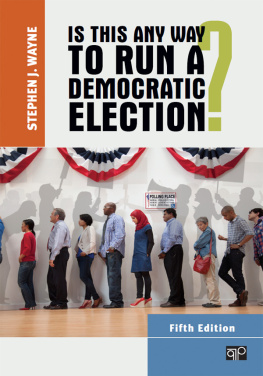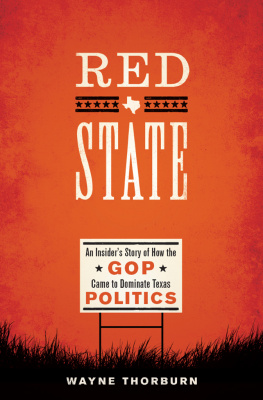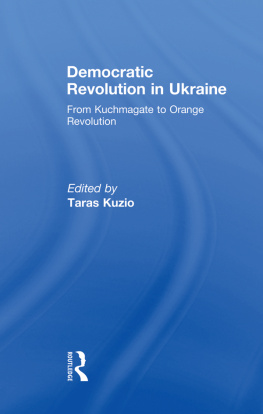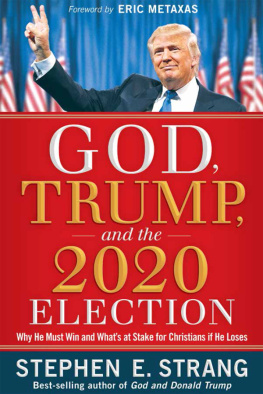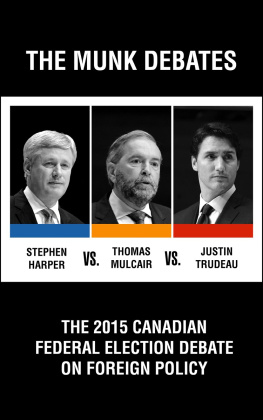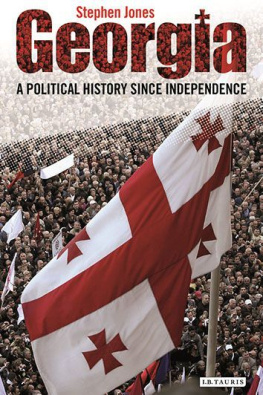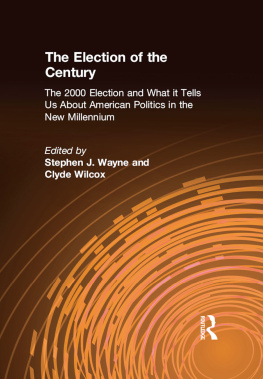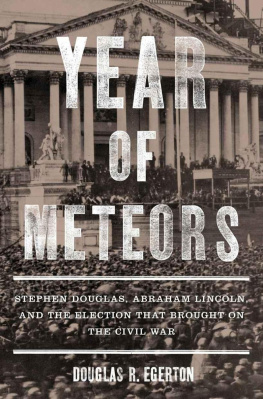
FOR INFORMATION:
CQ Press
An Imprint of SAGE Publications, Inc.
2455 Teller Road
Thousand Oaks, California 91320
E-mail:
SAGE Publications Ltd.
1 Olivers Yard
55 City Road
London EC1Y 1SP
United Kingdom
SAGE Publications India Pvt. Ltd.
B 1/I 1 Mohan Cooperative Industrial Area
Mathura Road, New Delhi 110 044
India
SAGE Publications Asia-Pacific Pte. Ltd.
3 Church Street
#10-04 Samsung Hub
Singapore 049483
Copyright 2014 by CQ Press, an Imprint of SAGE Publications, Inc. CQ Press is a registered trademark of Congressional Quarterly Inc.
All rights reserved. No part of this book may be reproduced or utilized in any form or by any means, electronic or mechanical, including photocopying, recording, or by any information storage and retrieval system, without permission in writing from the publisher.
Printed in the United States of America
Library of Congress Cataloging-in-Publication Data
Wayne, Stephen J.
Is this any way to run a democratic election? / Stephen J. Wayne, Georgetown University. Fifth edition.
pages cm.
Includes bibliographical references and index.
ISBN 978-1-4522-0565-6 (pbk. : alk. paper)
ISBN 978-1-4833-0193-8 (web pdf)
1. ElectionsUnited States. 2. Political campaignsUnited States. I. Title.
JK1967.W38 2013
324.973dc23 2013007620
This book is printed on acid-free paper.
Acquisitions Editor: Charisse Kiino
Editorial Assistant: Davia Grant
Production Editor: Stephanie Palermini
Copy Editor: Kate Macomber Stern
Typesetter: C&M Digitals (P) Ltd.
Proofreader: Joyce Li
Indexer: Sylvia Coates
Cover Designer: Auburn Associates Inc.
Marketing Manager: Erica DeLuca
Permissions Editor: Jennifer Barron
13 14 15 16 17 10 9 8 7 6 5 4 3 2 1
W e are a nation of critics, self-critics. As we laud our democratic system, we also complain about it. The election process in particular has been the source of much lament and critical commentary, especially in the aftermath of the controversial presidential election of 2000.
WHATS WRONG WITH AMERICAN ELECTORAL POLITICS?
A lot, say its critics. Their complaints are legion. The election cycle is too long, too complex, and too costly. The system is controlled by and for the few, the special interests, not the publics interest. Election laws are biased in favor of those who enacted themthe major parties and their candidatesand sometimes they have been implemented in a partisan and discriminatory manner. Money drives the process, and wealthy contributors exercise disproportionate influence over the candidates, parties, and campaigns, and on what follows from this election activitypublic policy making. The news media are more interested in reporting whos ahead and their strategies for winning than in discussing substantive policy issues and their consequences for the country. Politicians are not to be trusted; they will say and do almost anything to get elected, and once elected, they are beholden to their large contributors and the special-interest groups who aided their campaigns. Moreover, incumbents have stacked the deck in favor of their own renomination and reelection, thereby undercutting two of the basic goals of a democratic electoral processto keep public officials responsive to the people and to hold them accountable for their policy decisions and actions.
And if these allegations were not enough, there is the charge that election returns today do not result in winners who are compatible with one another, who are willing to compromise on the major policy issues, and who put the publics interest ahead of their own political and private interests. Nor does the outcome of the vote easily translate into a governing agenda and a majority coalition for achieving it, much less a functional government. All of these charges have produced negative perceptions of the electoral process today and undoubtedly have contributed to public cynicism, apathy, and mistrust of politicians and the politics in which they engage. Something is very wrong with American electoral politics, or so its critics allege.
Are these charges correct? Is the current way the best way to run a democratic election? Have we drifted from the ideals and goals of the American political tradition? If so, how and when did we do so, and what, if anything, can be done about it? If not, why are there so many persistent complaints, and why do so many people not vote?
Concerned citizens should be debating these issues. This book is intended to help them do so. My aim is to explore critical and controversial issues that confront our political system today, and to do so in a reader-friendly way. Is This Any Way to Run a Democratic Election? examines American democracy in theory and practice, notes where and why practices deviate from theory, and then considers reforms to close the gap.
THE ORGANIZATION AND FEATURES OF THE BOOK
The books first chapter discusses democratic theory in general and the democratic electoral process in particular. The next five chapters (chapters 26) examine key aspects of electoral politics: suffrage and turnout, representation, money, the news media, and political parties. Each of these aspects shapes an election, affects its outcome, and has consequences for governing. From the environment in which elections occur, the last three chapters (chapters 79) turn to the process itself: the nomination and general election, and their collective and individual impact on governing.
Each chapter of the book includes features intended to pique a readers interest in electoral issues and foster critical thinking and participation. Every chapter begins with Did you know that, an opening feature that presents interesting and sometimes disturbing facts about democratic election practices, processes, and outcomes that may not be widely known. After a discussion of the electoral dilemmas and ways to overcome them, each chapter concludes with a short summary, followed by a critical thinking section, Now Its Your Turn. Included in this section are Discussion Questions, Topics for Debate, research-oriented Exercises that encourage use of the Internet, and a listing of Internet Resources and Selected Readings.
WHATS NEW ABOUT THE FIFTH EDITION?
The election of 2012 marked the reelection of Americans first African American president but also the continuation of divided government. It revealed voting patterns evident in previous elections but also significant demographic changes within the electorate. Turnout was high, particularly among minority voters, to which a very effective get-out-the-vote campaign contributed. The campaign also reaffirmed the advantage of incumbency, not only for the president but for most members of Congress.



